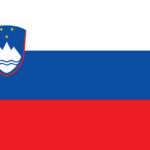Short introduction
Physiotherapy is a well-respected and vital healthcare profession, playing a key role in rehabilitation, injury prevention, and the management of chronic conditions. In Poland, physiotherapists are integral members of the healthcare system, contributing to a range of settings from hospitals to sports clinics. As the demand for healthcare professionals in Europe continues to rise, physiotherapy degree Poland is increasingly sought after for their expertise in promoting mobility, strength, and overall well-being.
Poland has become a popular destination for those seeking high-quality education in physiotherapy. The country offers rigorous training, supported by a robust healthcare system and modern educational infrastructure.

Many international students are drawn to Polish universities because of their affordable tuition fees, high academic standards, and opportunities for practical experience. Moreover, Poland’s strategic location within Europe provides graduates with access to various professional opportunities, both locally and abroad.
What to Expect from a Physiotherapy Degree in Poland
The physiotherapy degree in Poland typically spans 3 to 5 years, depending on the specific program and institution. The curriculum follows the European Credit Transfer and Accumulation System (ECTS), which ensures that the degree aligns with European educational standards. This system allows students to earn credits for each module and practical activity, ensuring the mobility of graduates across Europe and making Polish qualifications widely recognized.
The program is designed to provide a well-rounded education that balances theoretical knowledge with practical skills. In the initial years, students are introduced to the core concepts of physiotherapy, including anatomy, biomechanics, and human physiology. As the program progresses, the focus shifts towards rehabilitation techniques, injury prevention, and patient care, with an emphasis on evidence-based practice.
Students engage in internships at hospitals, clinics, and rehabilitation centers, where they apply their knowledge under the supervision of licensed professionals. This hands-on experience is essential for developing the skills needed to assess and treat a variety of patients, including those with physical disabilities, musculoskeletal injuries, and neurological conditions. Internships are strategically integrated throughout the curriculum.
Admission Requirements for Physiotherapy Programs in Poland
To be eligible for a physiotherapy degree in Poland, prospective students must meet basic entry requirements. The standard qualification needed is a high school diploma, typically with a background in biology, chemistry, or other relevant sciences. Some institutions may also require candidates to pass an entrance exam that assesses their knowledge in subjects critical to physiotherapy, such as anatomy and human biology.
Language proficiency is another key consideration for applicants. Many physiotherapy programs in Poland are taught in Polish, and students must demonstrate fluency in the language, typically through a language proficiency exam. For English-language programs, proof of proficiency in English, through standardized tests like TOEFL or IELTS, is often required.
The application process typically involves submitting educational transcripts, proof of language proficiency, and sometimes additional documents such as a personal statement or recommendation letters. It is important for international students to be aware of the specific deadlines for application submission, as these can vary by institution and may differ for EU and non-EU applicants.
Studying Physiotherapy in Poland: Costs and Financial Considerations
Tuition fees for physiotherapy programs in Poland vary depending on the institution and whether the program is taught in Polish or English. Fees are relatively affordable compared to other European countries, making Poland an attractive option for international students seeking quality education at a lower cost.
The cost of living in Poland is also relatively low compared to other European nations. The cost of accommodation varies depending on the city and type of housing, with student dormitories being the most economical option. Food and transportation costs are also modest, particularly in smaller cities, where students can live comfortably on a student budget.
In terms of financial aid, there are several options available for international students studying in Poland. Many universities offer scholarships based on merit or financial need, which can help offset tuition fees. Additionally, students may be eligible for grants or loans from their home country. Poland also has a number of exchange programs and bilateral agreements with universities in other countries, which can provide funding opportunities.
Career Opportunities for Physiotherapists in Poland
Physiotherapists in Poland have a wide array of career opportunities across various sectors of the healthcare system. The most common employment settings include hospitals, private clinics, rehabilitation centers, and sports organizations.
Hospitals in Poland, both public and private, employ physiotherapists to provide rehabilitation services to patients recovering from surgeries, injuries, or managing chronic conditions. In private clinics and specialized centers, physiotherapists may offer more personalized care, focusing on areas such as musculoskeletal injuries or post-surgical rehabilitation.
Sports organizations also employ physiotherapists to provide injury prevention, rehabilitation, and performance-enhancement services. Physiotherapists in these roles are critical in managing the physical health of athletes and preventing long-term injuries. Additionally, physiotherapists are increasingly in demand in the growing field of home healthcare, where they work with patients who are elderly or disabled, offering therapy in the patient’s home.

Specialization is a significant feature of the physiotherapy profession in Poland. Many physiotherapists choose to specialize in areas such as pediatrics, geriatrics, sports rehabilitation, or neurological rehabilitation.
Pediatric physiotherapists work with children who have developmental disabilities or congenital conditions, while geriatric physiotherapists focus on the elderly, helping them to maintain mobility and independence. Specializing in sports rehabilitation allows physiotherapists to work with athletes of all levels to treat sports injuries and improve performance. Neurological rehabilitation involves working with patients who suffer from conditions such as stroke, Parkinson’s disease, or spinal cord injuries.
The demand for qualified physiotherapists in Poland is strong, driven by an aging population, increasing awareness of the benefits of physical rehabilitation, and a growing emphasis on preventive healthcare. Across Europe, there is a steady need for physiotherapists, particularly in countries with aging populations and growing healthcare needs. As a result, physiotherapists trained in Poland have opportunities to work not only within the country but also across the EU..
Physiotherapy Associations in Poland
In Poland, the Polish Physiotherapy Association (IPA) plays a central role in regulating the physiotherapy profession. Established in 1958, the IPA ensures that physiotherapists adhere to ethical and professional standards throughout their careers. The association provides a platform for networking, professional development, and advocacy, ensuring that the physiotherapy profession remains integral to the Polish healthcare system.
The IPA also plays a significant role in continuing education and maintaining the quality of practice. Physiotherapists in Poland are required to pursue ongoing professional development to retain their credentials. This may involve attending specialized courses, workshops, or conferences, as well as engaging in clinical research.
To become a licensed physiotherapist in Poland, graduates of accredited physiotherapy programs must register with the relevant professional bodies and obtain their license. This process ensures that only qualified individuals are allowed to practice physiotherapy. Once licensed, physiotherapists are required to keep their skills current through continuing education.
The Polish Healthcare System and Its Impact on Physiotherapy Education
Poland boasts a well-established healthcare system that is publicly funded through the National Health Fund (NFZ), which provides universal healthcare coverage to all residents. The system is designed to ensure that healthcare services, including physiotherapy, are accessible to the entire population.
Physiotherapy students in Poland are trained in environments that cater to a wide range of patients, from those recovering from surgeries to individuals with chronic conditions or disabilities. Exposure to these varied patient groups ensures that students develop a well-rounded skill set, enabling them to work effectively in diverse clinical settings upon graduation. The integration of clinical practice within the educational curriculum allows students to apply theoretical knowledge and refine their treatment techniques under the supervision of experienced professionals.
How to Choose the Right Physiotherapy Program in Poland
Selecting the right physiotherapy program in Poland is a critical decision for prospective students, as it directly influences both the quality of education and future career prospects. Accreditation is a key factor in ensuring that a program meets the necessary academic and professional standards. Accredited physiotherapy programs in Poland are recognized by the Polish Physiotherapy Association (IPA) and comply with the regulations set by the European Union’s higher education framework.
Accreditation guarantees that the program aligns with national and international standards, ensuring that graduates are qualified to practice physiotherapy in Poland and other EU countries.
In addition to accreditation, students should consider the structure of the program and its alignment with their career goals. A well-rounded program should include a balance of theoretical coursework, practical laboratory sessions, and clinical internships. Students should also evaluate the availability of clinical training opportunities, as hands-on experience in real healthcare environments is essential for building competence and confidence.
Location is another important factor when selecting a program. Larger cities like Warsaw, Kraków, and Wrocław may offer more clinical partnerships and networking opportunities, but smaller cities and regional universities also offer high-quality programs with access to a diverse patient population. Additionally, it is beneficial to consider the university’s reputation in the field of physiotherapy and its relationships with healthcare providers.
Students should also look into the university’s support services for international students, including assistance with visas, accommodation, and cultural integration, to ensure a smooth transition to studying abroad.








